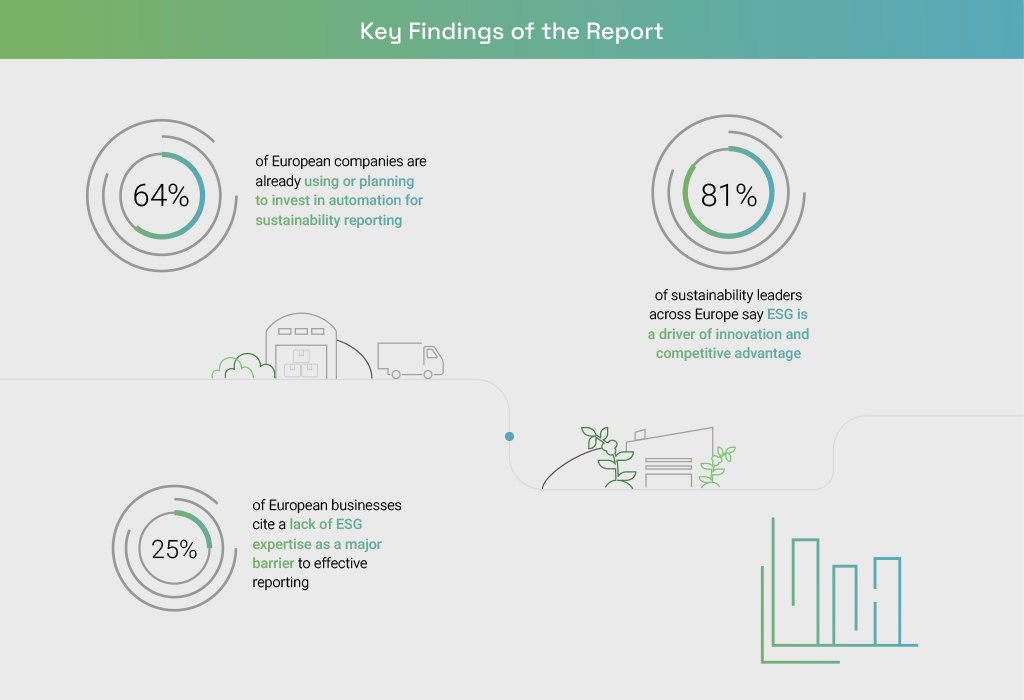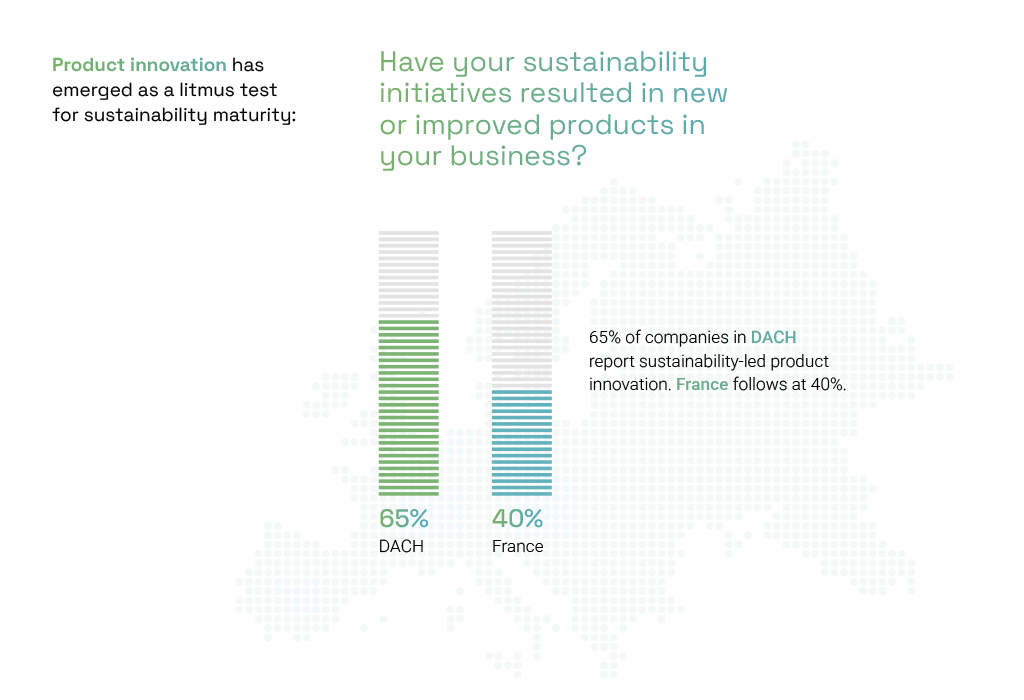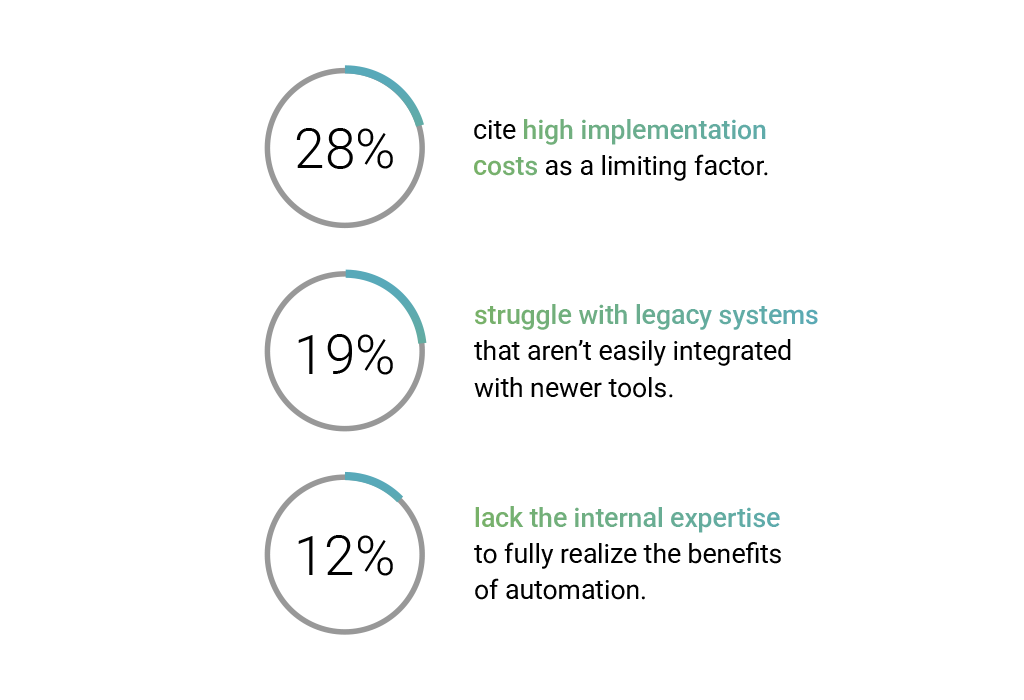Community
osapeers.org
This article is available in
About this article

Di Liao
AuthorAssigned categories
In today’s fast-changing business environment, sustainability has evolved from a compliance requirement into a powerful driver of innovation. Forward-thinking companies across Europe are leading the way: redefining their business models, streamlining operations, and launching new products, all by embedding sustainability into their core strategies.
To understand how this shift is playing out in practice, osapiens surveyed 250 senior leaders across six major European markets. The findings are clear: companies that treat sustainability as a catalyst for innovation are setting themselves apart and setting the pace.

Sustainability is no longer viewed as a limitation. It’s an opportunity. According to our latest research, 81% of sustainability leaders across Europe say that sustainability initiatives are driving both innovation and competitive advantage.
Alberto Zamora, Co-Founder and CEO of osapiens, captured this mindset shift in the report’s foreword:
“When I speak with business leaders across Europe, one thing comes up time and time again: sustainability has become a strategic priority. But turning that ambition into action is not easy. The biggest hurdle many companies face is data, more specifically, how fragmented it is.”
The message is straightforward: businesses that move beyond reporting for compliance and instead use sustainability insights to drive strategy are gaining a significant edge.
So, what exactly sets sustainability innovators apart from the rest? Our report finds that 65% of companies in the DACH region have already driven product innovation through sustainability initiatives. France is catching up with 40%, while Spain (31%), Benelux (28%), and Italy (21%) are showing promising momentum.

Sustainability leaders tend to share three core traits:
Despite growing ambition, many companies still struggle with the basics. Our report reveals that nearly one in three businesses say supplier compliance is their biggest challenge when it comes to sustainability reporting.
In complex, deep value chains, achieving transparency is particularly difficult. Nearly a quarter of companies across Europe say they lack confidence in their ability to achieve full supply chain visibility, a critical factor for reporting, risk management, and innovation.
Outdated systems, siloed data, and manual processes are slowing progress. But there is a clear path forward.
Digital tools are helping businesses turn complexity into clarity. In fact, 64% of companies in Europe are either already using or planning to invest in automation for sustainability reporting. Automation not only improves data quality and reduces manual effort; it unlocks real-time insights that power innovation. Businesses can spot inefficiencies, assess risks earlier, and act faster on emerging opportunities.

However, a digital divide remains. While the DACH region leads with 88% automation adoption, Benelux lags behind at just 36%. This isn’t just a tech gap; it’s a strategic gap. Companies with lower automation adoption risk slower reporting cycles, missed insights, and a widening gap to competitors already using automation to drive efficiency and innovation. In today’s market, waiting means losing ground.
Several industry leaders across Europe are already turning sustainability into a powerful competitive advantage through automation and strategic reporting:
These companies demonstrate that when sustainability data is consolidated, accessible, and actionable, reporting ceases to be a burden and instead becomes a launchpad for continuous innovation and sustainable growth.
Our comprehensive report, The State of Sustainability Reporting in Europe, provides deeper insights, regional benchmarks, and actionable strategies to turn sustainability reporting into your innovation powerhouse.
New osapiens Study: Majority of European Companies Continue Sustainability Reporting After the Omnibus
Insights from Real Mid-Sized Company Projects: How VSME Reporting Simplifies Customer Requests and Enables Growth
osapiens and JELD-WEN Europe Partner to Deliver Next-Generation Supply Chain Transparency Ahead of EUDR Implementation